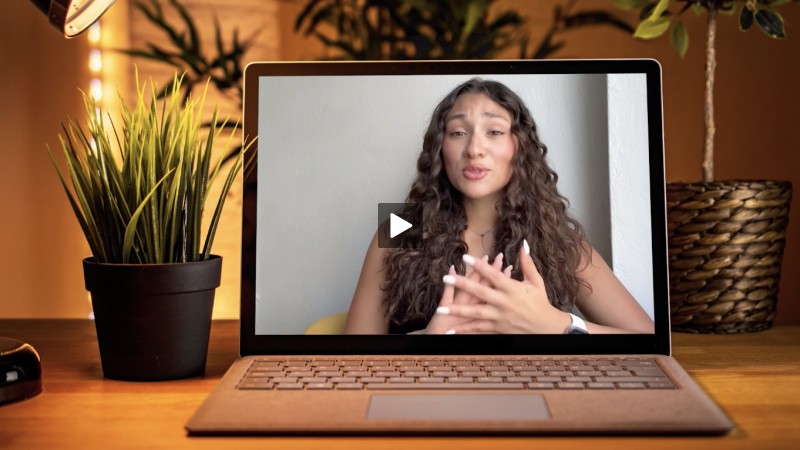Loud Budgeting, and Other Unusual Money Habits That Can Make You Money!
- Details
- Written by Will from Holland
- Category: Articles

Everybody can use a little extra money every now and then, right? You can work harder or work more, but you could also decide to adjust your money habits to get there.
I hope these tips will give you some ideas on how to make a little extra cash on the side.
It's actually easier to save money, than to make money. So, let's free up some money to add to your savings. Let's start with your budget!
If you haven't read through our article on budgeting 101, do it now. You'll thank yourself, as by living within your means you can actually control your spending, and free up money to put towards your savings.
1) Start with Loud Budgeting
Loud budgeting is a trend on social media that is all about holding financial boundaries in a shame-free way. Telling people you're living on a budget, or how you're saving money, and not feeling bad about it.
Hey, everything in the world is getting more expensive, it's okay to be sensible with your money! People should admire you for it, really. So, buy your clothes at the thrift store and post it on social media, participate in no-buy whatever month and be proud and tell your friends, as long as it fits in your budget. It's all about finding creative ways to spend your own hard-earned money so you can maximize your savings.
2) Move Your Budget to the Cloud!
Now that you have your budget under control, and you’re sticking to it, let’s move a level up. Regular budgeting is often linked to boring spreadsheets and math, but it doesn’t have to be that way.
After last month's article on budgeting 101, I know you have a budget. And I also know you're going to stick to it. And that's good!
Even though this tip on budgeting may not seem unusual or new in any way, moving it to the cloud is, at least for the majority of people! Say you created your budget after reading my article, changes are you jotted it down on a piece of paper?
Great, now let's move it to the cloud. Personally, I use Google Drive, and simply put all my data in an Excel sheet; income, expenses, savings, all the lot. Every time I spend something, no matter where I am, I can easily and quickly adjust my spreadsheet (money nerd as I am, I keep a tab open in my phone's web browser for easy access).
3) Name Your Savings Account(s)!
I love saving, and it happens to be good for you (and for your financial future), too. When you know what you are saving for, you're likely to save more. So, my savings account is divided into ten different pots, each of which I have given a unique name.
One of them is called 'Hooray, 2 years-old'. I save there for my son's birthday. Another one has the name of a street where I would like to live someday (though chances are bigger that this is going into remodeling at my current address instead).
By naming your savings goals, you make saving tangible. You know exactly what you are working towards, how much you need, and how far you are already.
4) Visualize and Manifest the Things You Want
Got a number in your mind that would make you feel like you "made it"? Or a material item that's always been on your mind that you hope to have one day? Great! I strongly believe in visualization and manifestation. That means closing your eyes and imagining what it would be like if you reached a certain (saving or financial) goal. For one, that is financial stability, for the other that may be a dream car.
Suppose you dream of that one awesome car. Visualize it already being yours! Close your eyes, envision the rewarding feeling of putting in the hard work and discipline of saving up for it, shaking the sales person's hand, inserting the key into the ignition (or pressing the key-less start button), enjoying the new car smell, and driving down the street to your dream house (see #2).
Is money usually a problem for you? Visualize yourself financially stable. Try to imagine and feel what it would be like if those worries disappeared. When your money worries are gone, you feel free again, ready to start moving up, towards your saving goal.
A disclaimer: in addition to visualization, you have to work hard to achieve those goals, of course. It's not magic, this stuff. Visualization does help you stay enthusiastic about your goal, and disciplined to get there. I see it as an extra push in the right direction. Try writing down your goals as if they have already happened in a journal every day or weekly, as well as, the steps you need to take in order to reach it, to help hold yourself accountable and keep your dream top-of-mind.
5. Negotiate, Haggle, Bargain, About Anything, Everywhere
Okay, maybe not in the supermarket, but even a half-hearted attempt at negotiating in most stores can work a lot of the time. Try it!
They can give you the "repeat customer discount", a "complimentary 10% off", or whatever.
When I buy a new gadget, I always try to talk the price down. Buying shoes or clothes...? Try it! You never know, and may even save $10 or more on a single purchase.
Sure, bargaining usually works better when buying second-hand items on eBay or Craigslist, but at least try. It's fascinating. You don't know that salesperson and probably never see him or her again. You don't come across as cheap. It's about making the best deal for yourself.
Don't know how to negotiate? These quick tips may help:
- Do your research, so you know where to go and what you want to pay for an item.
- Get in the haggling mindset. You are going to do this.
- Learn key phrases to help your negotiations.
- Never be the first to say a price (unless it's already given, then negotiate from a low amount).
- Know your price ceiling, and stick with it.
- Be willing to walk away with disinterest.
Note: It becomes even more fun when you put what you save in your savings account, or invest it. Then that money also grows.
6. Be Open to Business Opportunities
This sometimes drives me a little crazy, but my wife sees a business in nearly everything.
Once, while vacationing in our camper van, my wife forgot her purse at home. She ripped apart one of her shorts and a t-shirt, sew the pieces together into her own handbag, and used a belt for a handle.
Someone at the campground loved the purse so much, she offered to buy it. Back home, my wife started making purses like this and still sells them on the internet today (and makes a little money while doing so).
Once you get the hang of trading a little, you not only earn a nice pocket money, it can also give you satisfaction. How cool is it to come up with something that others are willing to pay for and serves them well?
That's about it for now. I hope these tips will give you some ideas on how to make a little extra cash on the side.
Do you have any of your own money saving ideas to share? Great! Send them my way (use "Contact" up top), and it just might make it into a future article!
Cheers, Will

































